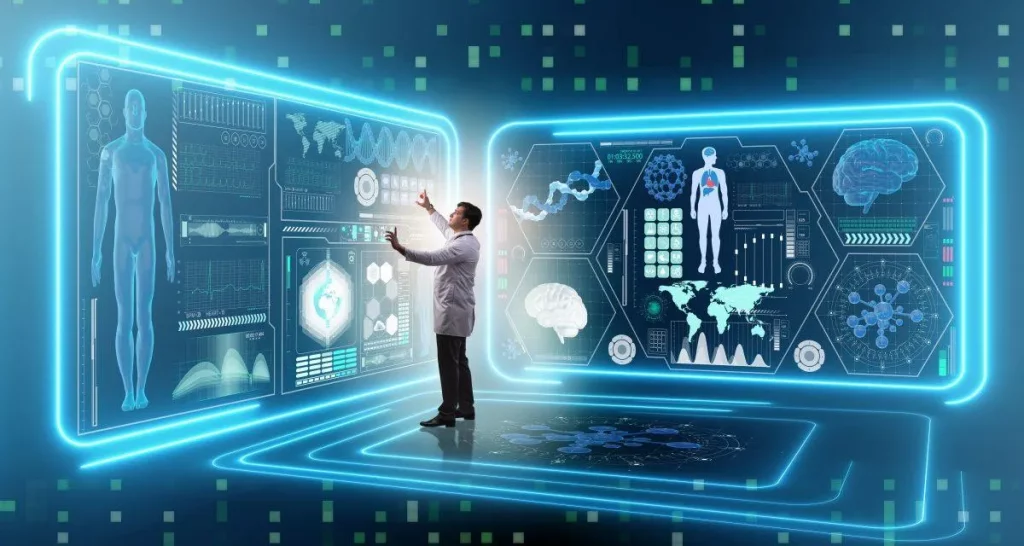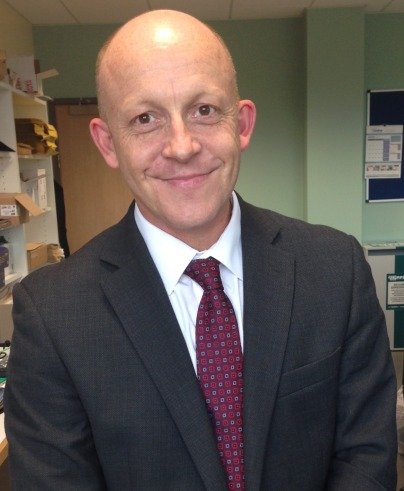Revolutionizing Cancer Care AI Advances in Dublin Hospitals
In a groundbreaking development for cancer treatment, artificial intelligence (AI) is making waves at three Dublin hospitals, promising improved outcomes for thousands of patients. This marks a significant milestone as the first major implementation of AI in Irish cancer services, with up to 5,000 patients annually expected to benefit from more efficient radiotherapy preparation.

RELATED ARTICLE AI to improve treatment for thousands of cancer patients at three Dublin hospitals
Overview of AI & HEALTHCARE
Artificial intelligence (AI) is revolutionizing healthcare, offering solutions from answering patient queries to aiding surgeries and drug development. The AI healthcare market, valued at $11 billion in 2021, is projected to reach $187 billion by 2030, ushering in substantial changes across medical providers, hospitals, and pharmaceutical companies.
AI’s growing application in healthcare is driven by enhanced machine learning algorithms, increased data access, affordable hardware, and 5G availability. AI and machine learning excel in swiftly analyzing vast health datasets, including records, clinical studies, and genetic information, outpacing human capabilities.

The benefits of AI in healthcare are manifold, enhancing operational efficiency and patient care. Administrative workflows see improvement through AI automation, reducing paperwork for healthcare workers. Virtual nursing assistants, powered by AI chatbots, aid patients with questions, report forwarding, and appointment scheduling, freeing clinical staff for more patient-focused tasks.
AI tackles dosage errors by identifying patient self-administration mistakes, potentially reducing risks. In surgeries, AI-enabled robots enhance precision, minimizing blood loss, infection risks, and post-surgery pain. Fraud prevention in healthcare, a $380 billion/year issue, sees AI recognition of unusual billing patterns.
AI also enhances the patient experience by addressing communication gaps. Natural language processing, predictive analytics, and speech recognition facilitate clearer communication between healthcare providers and patients. In diagnoses, AI’s early application indicates potential cost reductions of up to 50%, improving health outcomes by 40%.
AI’s role extends to health monitoring, preventive care, and data connectivity. Health and fitness monitors, coupled with AI, enable real-time data sharing for better disease management. Additionally, AI streamlines information gathering, sharing, and analysis, improving drug safety and disease management.

Despite these advancements, ethical and regulatory governance for AI in healthcare is crucial to address concerns related to bias, transparency, privacy, and safety. The World Health Organization advocates ethical principles, ensuring AI maximizes benefits and remains accountable to the public.
IBM’s Watson Assistant exemplifies the integration of AI in healthcare, offering quick responses to patient queries, optimizing professionals’ time, and enhancing patient experiences. As AI tools continue to evolve, the potential for more streamlined healthcare processes and improved patient care remains promising.
RELATED ARTICLE The benefits of AI in healthcare
The innovative use of AI focuses on assisting medical staff in examining cancer patients’ scans, precisely defining areas of tissue to target during radiotherapy while minimizing potential side effects. Traditionally, this mapping process, crucial for distinguishing healthy and cancerous tissue, has been a manual task, consuming 30 to 90 minutes for conditions like head/neck or pelvic cancers. However, a new software developed by Finnish company MVision is changing the game, completing the process in a remarkable 60-120 seconds.
RELATED ARTICLE AI in Healthcare

Prof Charles Gillham, the network director, highlights the profound impact of this AI implementation on patient care. The software allows oncologists and radiation therapists to dedicate more time to direct patient interaction, streamlining the process from CT scan to treatment initiation. Not only does it expedite the overall procedure, but it also ensures greater precision and uniformity in radiotherapy planning.
Funded by Friends of St Luke’s and St Luke’s Cancer Research Fund, the technology holds immense potential to transform cancer care by providing same-day treatment, eliminating the weeks-long waiting period associated with manual planning. While Prof Gillham acknowledges the rapid pace of AI development, he emphasizes that these technologies are facilitators rather than replacements for the vital work done by cancer doctors.
As the largest provider of radiation oncology services in Ireland, operating across three major centers, St Luke’s Radiation Oncology Network is pioneering AI integration in cancer treatment. The hope is that the Health Service Executive (HSE) will support this transformative technology beyond its initial three-year period, ensuring a sustained positive impact on cancer care in Dublin.
